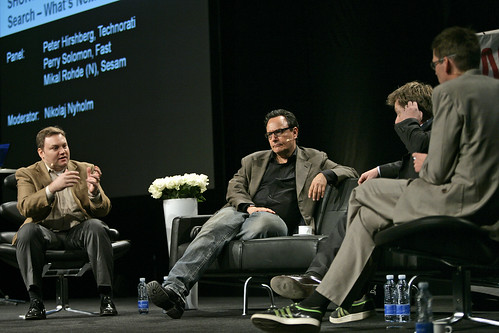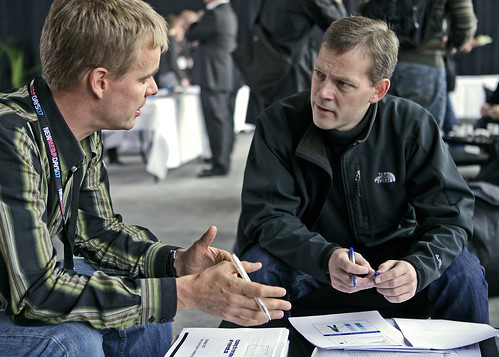It was a morning jampacked with interesting sessions here on the second day at the New Media Days conference in Copenhagen. Among other things it was a morning of media politics with light being shed on the issue from opposite perspectives. First: How will politicians support media development? Second: How can media technology support politicians?
To kick things off Danish spokesmen on IT and media politics, Ellen Trane Nørby and Mikkel Dencker, were joined on stage by CEOs from the media business, namely Chris Mottes of Deadline Games, Stephen Stephensen of Mingoville and Christian Peytz of FDIM.
After a quick presentation round that revealed some media shortcomings and old hat media uses on the part of the politicians, the business boys had prepared one video argument/question each for the politicians to reflect on. I’m just going to give you the short version. If you want to follow the full argument (in Danish) be sure to look out for the conference webcasts coming online very soon.
Chris Mottes, CEO Deadline Games.
“Which initiatives are you putting forward to support innovation in the media business and prevent developers from moving abroad?”
ETN: I think we’re doing a lot as it is. You’re a game developer and for instance we’re focusing on supporting learning based games because research has shown that children actually learn more by engaging them this way.
Stephan Stephensen, CEO Mingoville
“It would help new businesses to prosper and innovate if they could keep their earnings for three years before paying income taxes.”
MD: Interesting proposition. We’ll have a look at that. But of course it’s important to secure competitive balance across businesses also. Businesses would have to apply for this model and be approved.
Cristian Peytz, chairman FDIM
“How do we secure the privacy of the users and also equal business competition, when services such as Facebook follow American laws?”
ETN: I think the users will start to react and regulate much of this themselves. I’m totally against applying too many top down rules to the principles of the internet. Information should be able to flow freely.















